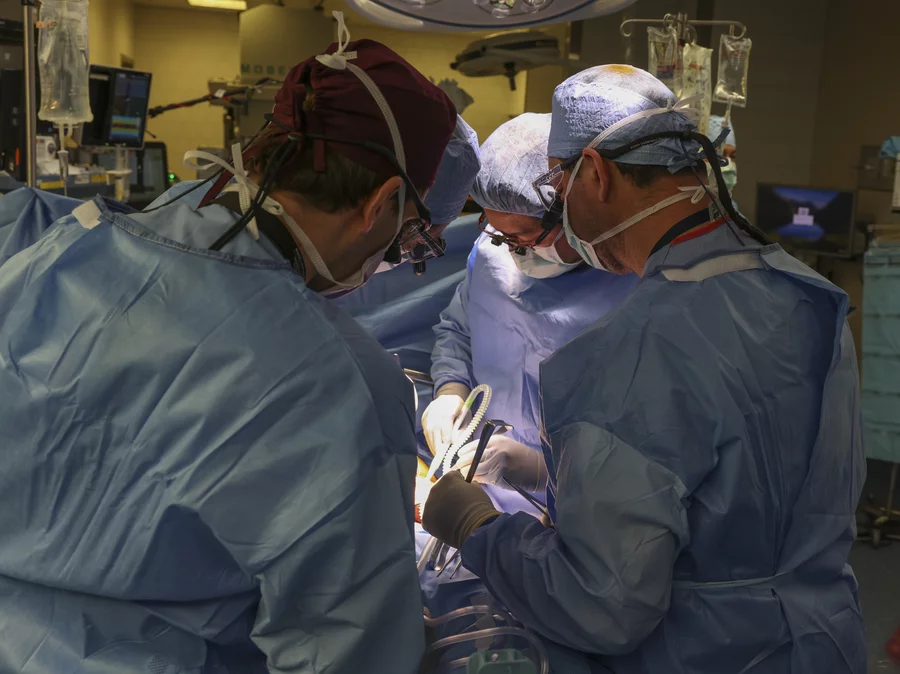BOSTON — In a medical milestone, surgeons have successfully transplanted a kidney from a genetically modified pig into a living person, a procedure that took place at Massachusetts General Hospital, Boston doctors announced on Thursday.
Richard Slayman, a 62-year-old resident of Weymouth, Massachusetts, who is battling end-stage kidney disease, underwent the groundbreaking four-hour surgery on Saturday. The hospital, which shared the news as reported by NPR, stated that Slayman is recovering well and is slated for discharge on Saturday.
Slayman, expressing his gratitude and optimism, said, “I saw it not only as a way to help me, but a way to provide hope for the thousands of people who need a transplant to survive,” in a statement issued by the hospital.
This pioneering procedure marks a significant advancement in the ongoing efforts to use genetically modified pigs as sources for kidneys, livers, hearts, and other organs. This initiative aims to mitigate the critical shortage of available organs for transplantation.
Biotech firms are actively competing to develop a supply of cloned pigs, genetically engineered to prevent rejection by the human immune system, avoid transmission of porcine viruses to humans, and eliminate other potential complications. NPR recently gained exclusive access to a research farm raising these animals for Revivicor Inc., a leading company based in Blacksburg, Virginia, participating in this race.
The kidney used in the Boston transplant was provided by a pig developed by eGenesis, located in Cambridge, Massachusetts. The eGenesis pigs have undergone 69 genetic modifications to ensure their organs are suitable for human transplantation. These alterations include protections against a pig virus and modifications to pig genes while introducing human genes to enhance compatibility with human patients.





